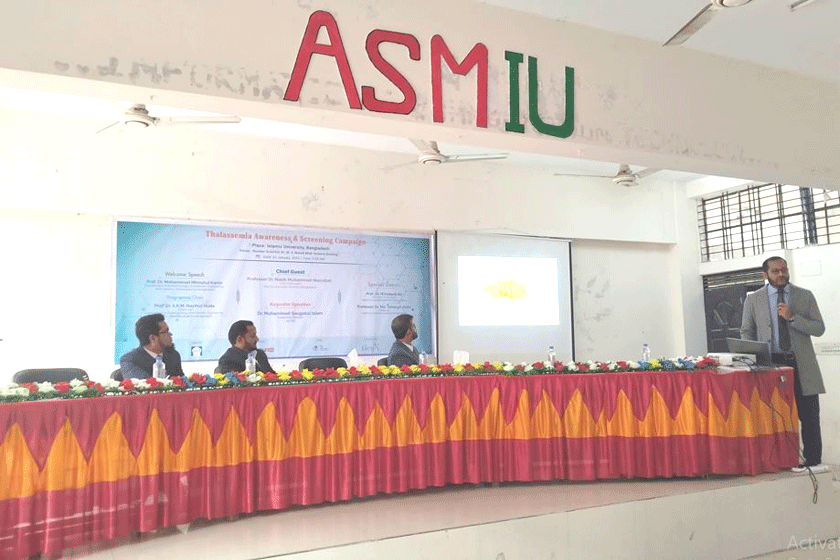
Thalassemia Awareness and Screening Campaign Held at Islamic University
Bangladesh News Desk
Published:25 Jan 2025, 03:56 PM

Thalassemia Awareness and Screening Campaign Held at Islamic University
A Thalassemia awareness and screening campaign was held at Islamic University (IU) jointly organized by the ASM IU Chapter of the American Society for Microbiology and the research and innovation organization Bioted.
A Thalassemia awareness and screening campaign was held at Islamic University (IU) jointly organized by the ASM IU Chapter of the American Society for Microbiology and the research and innovation organization Bioted.
The awareness seminar and screening campaign took place on Saturday (January 25) at 9:30 AM in Room no 102 of the Dr. M. A. Wazed Miah Science Building on the university campus. On this day, approximately 200 students were provided with free thalassemia screening.
The program was presided over by Professor Dr. A.K.M. Nazmul Huda, Chair of the Department of Biotechnology and Genetic Engineering. The event featured Professor Dr. Naqib Mohammad Nasrullah, Vice-Chancellor of the university, as the chief guest and Professor Dr. Jahangir Alam, Treasurer, as a special guest. Additionally, Professor Dr. Minnatul Karim Akhand, ASM Country Ambassador of Bangladesh, delivered the welcome speech, and Dr. Mohammad Saugatul Islam, Executive Director of Bioted, presented the keynote speech.
The key-note speaker, Dr. Saugatul Islam stated, "Various studies reveal that 11% of Bangladesh's population is affected by thalassemia, equating to nearly 20 million people. Among them, the number of patients with beta-thalassemia is higher in Bangladesh. We should ensure that before marriage, it is checked whether either spouse is a carrier of thalassemia. If we are aware, it is possible to reduce the number of thalassemia cases to zero. If we can raise awareness among the youth, they can bring about this change. I urge students, even if you are not carriers, to try to make at least 10 others aware. There is no cure for thalassemia, so we must focus on prevention."
Professor Dr. Jahangir Alam, stated, "I extend my gratitude to the organizers for arranging such an important program. While these tests can be conducted at the university level, their availability in rural areas is very limited. Many patients in villages are unaware of the disease and its consequences. I would request the organizers to extend their activities to rural areas on a larger scale. I believe this will help us eradicate thalassemia."